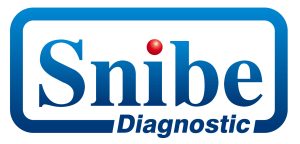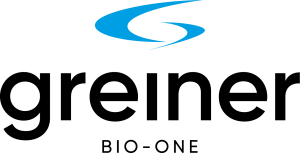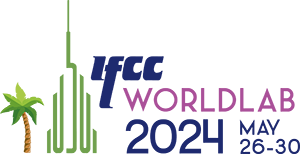DAY 1
Monday, 27 May
![]()
- Lunch Workshop 2 13.00 – 14.00 ROOM C
Convergence of Clinical Diagnostics and Population Health. Evolving to Clinical Lab 2.0, from Business of Volume to Business of Value.
CHAIR: Els Melis
SPEAKER: Khosrow R. Shotorbani, MBA, MT (ASCP)
PROGRAMME
13.00-13.05: Chair: Welcome and Introduction of the topic and speaker
13.05-13.40: Speaker: Reshaping together how healthcare is delivered. Evolving the lab from volume to value-based testing.
13.40-14.55: All: Q&A
13.55-14.00: Chair: Close
Learning Objectives:
• Inspire Laboratory Professionals about the future role of the Clinical Laboratory through amplification of actionable insights. The value of the lab doesn’t end when we release a result, rather, that’s where it begins.
• Create a disruptive value paradigm and explore alternative business models that expand the role of diagnostic services in the future healthcare ecosystem.
• Provide a potential platform with specific examples about the convergence of diagnostics and population health.
Background on the topic:
• The role of clinical diagnostics in the sustainable healthcare future state is crucial. As the healthcare moves from volume to value, our healthcare systems require the information to predict and monitor to proactively manage and mitigate clinical risk.
• The longitudinal clinical lab data are essential ingredients to proactively risk stratify the population in preparation to value-based care.
• This is the role of Clinical Lab 2.0!

- Educational Workshop 1 14.30 – 17.00 ROOM A
Insights on the Laboratory Medicine
CHAIR 1: Prof. Dalius Vitkus
SPEAKER 1: Prof. Tomris Ozben
SPEAKER 2: Dr. Endang Hoyaranda
SPEAKER 3: Dr. Annette L. Salillas
SPEAKER 4: Dr. Barnali Das
CHAIR 2: Dr. Hassan Bayat
SPEAKER 5: Prof. Khosrow Adeli
SPEAKER 6: Prof. Tiago Guimaraes
SPEAKER 7: Prof. Tatiana Vavilova
PROGRAMME:
SESSION 1 – 14:30 – 15:50
Moderator – Prof. Dalius Vitkus
14:30-14:50 Integrated Diagnostics: Evidencebased Therapy Guidance in Oncology from Tumor Markers to Immunohistochemistry, Molecular Testing, Liquid Biopsy and Imaging – Prof. Tomris Ozben
14:50-15:10 The Medical Laboratory Supporting ESG – Dr. Endang Hoyaranda
15:10-15:30 Autoimmune Markers of Thyroid Diseases – An Update – Dr. Annette L. Salillas
15:30-15:50 Defining, Establishing and Verifying Population Specific Reference Interval: Key to Harmonization – Dr. Barnali Das
SESSION 2 – 15:50-17:00
Moderator – Dr. Hassan Bayat
15:50-16:10 Laboratory Biomarkers in Autoimmune Disease Diagnosis and Monitoring – Prof. Khosrow Adeli
16:10-16:30 What Vitamin D should We Measure? – Prof. Tiago Guimaraes
16:30-16:50 Laboratory Markers of Hemostasis Pathology for Cardiological Problems – Prof. Tatiana Vavilova Q&A
Learning Objectives:
• Tumor Markers in the Current and Future Clinical Practice
• Methods to measure tumor markers and limitations of tumor marker tests
• Improvement of diagnostic performance of tumor markers
• Diagnosis of cancers based on tumor markers only
• Integration of tumor markers with other diagnostic modalities such as immunohistochemistry, molecular testing, liquid profiling, imaging.
• Understand definition and content of ESG and know how ESG affect medical laboratories
• Overview thyroid physiology & the common thyroid dysfunctions
• Define prevalence & clinical significance of autoimmune disorders
• Recognize the repertoire of laboratory techniques for autoimmunity assessment
• Integrate knowledge of various laboratory tests within the context of autoimmune disease workup.
• Learn new pediatric reference limits developed for autoimmune biomarkers.
• To know different markers related to hemostasis pathology and cardiovascular disorders.

- Educational Workshop 2 14.30 – 15.30 ROOM C
Empowering Healthcare: Unveiling Strategic Approaches in Clinical Laboratory Medicine for Enhanced Diagnoses, Treatment, and Outcomes
CHAIR: Eliana Valle, M.D., M.B.A.
SPEAKER 1: Dr. David Grenache, PhD
SPEAKER 2: Professor Philip Newsome PhD, FRCPE
PROGRAMME:
Time to Shine: An Era of health and wellness driven via the clinical laboratory (20 min.) Dr David Grenache
Improving health and financial outcomes through valued implementation of a novel and enhanced intelligent liver function testing (iLFT) pathway. (20 min.) Prof Philip Newsome
Q&A (20 min)
Learning Objectives:
• Highlight key attributes of high-performing clinical laboratories that are achieving measurable better healthcare.
• Appreciate the importance and use of clinical decision support in uncovering new insights while standardizing and maximizing novel care pathways.
• Understand how to begin maximizing laboratory medicine for improved health and financial outcomes.

- Educational Workshop 4 14.30 – 15.30 ROOM B
Simpler, Smarter Solutions: Waters Total LCMS/MS Workflow
SPEAKER 1: Godo BOSCH
SPEAKER 2: Stephen BALLOCH
PROGRAMME:
Why LC/MS is becoming essential in the Diagnostic Laboratory (25 min)
Recent developments to simplify and improve efficiency of the workflow for complex and emerging applications. (35 min)
Includes time for Questions and Answers
Learning Objectives:
The ever-growing use of mass spectrometry (MS) in clinical diagnostics has resulted in the introduction of numerous methods information rich with high sensitivity and unrivalled specificity. Numerous disease areas have benefited enormously from clinical MS development. MS methods are becoming routine and are preferred techniques in many clinical laboratories for specific patient cohorts. This session is aimed at giving insights into different MS applications that help to resolve challenging analytical demands for specific patient cohorts and how this can support diagnostics, monitoring and eventually, disease prevention. Examples in routine work such as Endocrinology and Therapeutic Drug Monitoring assays will support the discussion and highlight the versatility of the technology to cope with small molecules as well as large biomolecules.
DAY 2
Tuesday, 28 May

- Lunch Workshop 8 13.00 – 14.00 ROOM B
Managing the blood sampling volumes: why, who and how?
CHAIR: Ana-Maria Šimundić (HR)
SPEAKER 1: Mario Plebani (IT)
SPEAKER 2: Álvaro González (SP)
PROGRAMME:
13.00/13.25 – Speaker Mario Plebani (IT)
Title: The role of laboratory in managing the blood sampling volumes
13.25/13.50 – Speaker Álvaro González (SP)
Title: Capillary blood sampling – do’s and dont’s
13.50/14.00 – Discussion and Q&A
Learning Objectives:
• To understand which processes lead to excessive and unnecessary blood loss in a patient
• To understand the impact and ethical issues of excessive and unnecessary blood loss
• To be able to identify measures which laboratories may apply to mitigate the unnecessary blood loss
• To understand the difference between capillary and venous blood sample
• To identify possible sources of bias associated with capillary blood collection and how to mitigate these risks

- Educational Workshop 9 14.30 – 17.00 ROOM A
Updates on Standardization and Harmonization in Immunoassays
CHAIR 1: Dr. Pilar Fernandez-Calle
SPEAKER 1: Prof. Mario Plebani
SPEAKER 2: Prof. Tomas Zima
SPEAKER 3: Prof. Waleed Tamimi
SPEAKER 4: Prof. Andrey Ivanov
CHAIR 2: Dr. Eduardo Freggiaro
SPEAKER 5: Prof. Etienne Cavalier
SPEAKER 6: Dr. Carlos Garces
SPEAKER 7: Dr. Andrei Komarov
PROGRAMME:
SESSION 1 – 14:30-15:50
Chair – Dr. Pilar Fernandez-Calle
14:30-14:50 Standardization and Harmonization in Immunoassays: Quality and Comparability Are Needed – Prof. Mario Plebani
14:50-15:10 Tumor Markers Focused on Gastric Area – Prof. Tomas Zima
15:10-15:30 Evaluation of PIVKA II Assay in Patients with Liver Diseases – Prof. Waleed Tamimi
15:30-15:50 Fundamental Scientific Research is a Source of New Opportunities for Laboratory Medicine – Prof. Andrey Ivanov
SESSION TWO 15:50-17:00
Chair – Dr. Eduardo Freggiaro
15:50-16:10 Update on 25-OH Vitamin D Measurement and Metabolites – Prof. Etienne Cavalier 16:10-16:30 ESG for Medical Laboratories, How to Implement from Theory to Practice – Dr. Carlos Garces 16:30-16:50 Ways of Automising Laboratory Performance in the Context of Robotechnics’ Development – Dr. Andrei Komarov
Learning Objectives:
• To understand the increasing importance of data comparability in laboratory medicine
• To understand the differences between standardization and harmonization in laboratory medicine
• To understand differences between clinical chemistry measurands immunoassay
• To understand the further steps in standardization and harmonization in the total testing cycle
• Understand methods to measure tumor markers
• Interpret concentrations of tumor markers in various gastric disorders
• To know the background and clinical applications of PIVKA-II
• Briefly know the evaluation and comparison results of different PIVKA-II assays
• Understand the different metabolite pathways of vitamin D
• Interpret vitamin D concentrations in different clinical contexts

- Educational Workshop 10 14.30 – 15.30 ROOM C
New Perspectives for the Utility of Big Data Analysis to Derive Reference Intervals Using Indirect Methodology
CHAIR: Dr. Jakob Zierk
SPEAKER 1: Prof. Anwar Borai
SPEAKER 2: Prof. Khosrow Adeli
SPEAKER 3: Prof. Kiyoshi Ichihara
PROGRAMME:
Why Should We Establish Reference Intervals For Each Population? Saudi Population Study as An Example (20 min.) – Prof. Anwar Borai
Big Data Analytics to Harmonize Reference Intervals Across Populations and Analytical Platforms (20 min.) – Prof. Khosrow Adeli
Critical assessments of reference intervals derived indirectly from laboratory database” (20 min.) – Prof. Kiyoshi Ichihara
Learning Objectives:
• To show how clinical decisions can be affected by the obtained reference intervals (RIs) using the established RIs on Saudi population as an example.
• Define application of big data analytics to determination of indirect RIs and to achieve harmonization across clinical laboratories.
• To show different schemes of data-cleaning for indirectly derived RIs and validate their accuracy in comparison to RIs obtained by direct method.

- Educational Workshop 11 14.30 – 15.30 ROOM D
Cardiovascular Disease: From Laboratory Diagnosis to Challenges
CHAIR: Prof Tomris Ozben
SPEAKER 1: Prof. Sergio Bernardini
SPEAKER 2: Dr. Fadwa Said Abdelazim
PROGRAMME:
14:30 -14:35 Welcome and Introduction – Tomris Ozben
14:35 -14:55 Laboratory Test for Cardiovascular Disease – Fadwa Said Abdelazim
14:55 -15:25 Cardiovascular risk stratification: a fundamental challenge for laboratory medicine – Sergio Bernardini
15:25-15:30 Discussion
Learning Objectives:
• Analyze the existing practices of laboratory medicine in CVD treatment, including the challenges and prospects involved.
• Understand the significance of the Hs-cTnI test, when paired with clinical and diagnostic findings, in determining the risk of future cardiac episodes in a population perceived as healthy.
• Understand how addition of hs-cTnI into risk assessment algorithms can support appropriate management and treatment.

- Educational Workshop 12 14.30 – 15.30 ROOM B
Fecal Calprotectin: A Biomarker for Gastrointestinal Inflammation in IBD – Clinical Insights and Efficient Laboratory Workflow
CHAIR: Christian-Benedikt Gerhold, PhD
SPEAKER 1: Alexander Ohmann, PhD
SPEAKER 2: Prof. Jordi Guardiola
SPEAKER 3: Mrs Rouba Trad
PROGRAMME:
14.30 Calprotectin: Insights into biological function & biochemical analysis – Alexander Ohmann
14.50 Clinical value of calprotectin in the diagnosis and management of patients suffering from IBD – Prof. Jordi Guardiola
15.10 Fecal calprotectin testing in routine lab work: the experience from a reference center – Rouba Trad
15.25 Q&A session
Learning Objectives:
• Gain an understanding of the interesting and complex biochemistry of calprotectin and its significance as an important player in the innate immune system.
• Learn about the clinical importance of calprotectin levels and how it influences IBD patient management.
• Learn how to implement fecal calprotectin testing into automated and optimized laboratory workflow and how to overcome analytical and pre-analytical challenges.
DAY 3
Wednesday, 29 May

- Educational Workshop 17 14.30 – 17.00 ROOM A
Looking beyond the Future of Laboratory Medicine
CHAIR 1: Prof. Praveen Sharma
SPEAKER 1: Prof. Maurizio Ferrari
SPEAKER 2: Prof. Issam Frigaa
SPEAKER 3: Dr. Ali Bayoumi
SPEAKER 4: Prof. Aaron Han
CHAIR 2: Prof. Vincent Sapin
SPEAKER 5: Prof. Tahir Pillay
SPEAKER 6: Dr. B. K. T. P. Dayanath
SPEAKER 7: Dr. Dheepa Manoharan
PROGRAMME:
SESSION 1 – 14:30-15:50
Moderator – Prof. Praveen Sharma
14:30-14:50 How to Imagine the Future of Laboratory Medicine? – Prof. Maurizio Ferrari
14:50-15:10 Strategies and New Challenges in Blood Donor Screening – Prof. Issam Frigaa
15:10-15:30 Establishing Reliable Reference Intervals: a Crucial Step in Accurate Diagnosis and Treatment – Dr. Ali Bayoumi
15:30-15:50 Laboratory Quality Management and CAP Accreditation – Prof. Aaron Han
SESSION 2 – 15:50-17:00
Moderator – Prof. Vincent Sapin
15:50-16:10 Reproductive Hormone Assays Using Chemiluminescence – Prof. Tahir Pillay
16:10-16:30 Dynamic & Invasive Endocrine Function Tests – Dr. B. K. T. P. Dayanath
16:30-16:50 Quality in Chemistry – Dr. Dheepa Manoharan







